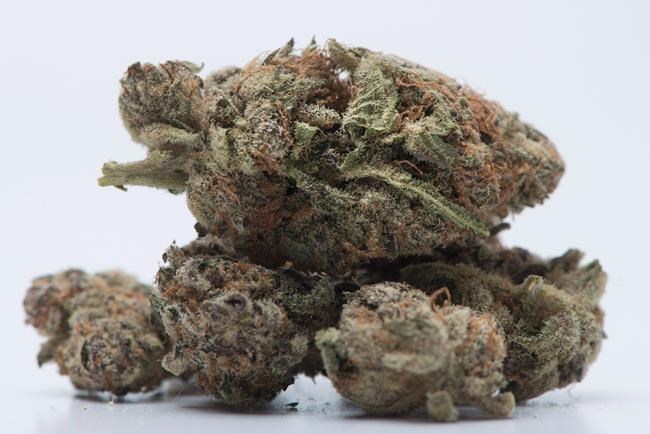OTTAWA — The RCMP has eased its policy on cannabis use by members, saying simply they must be fit for duty when reporting for work.
The new substance use policy replaces a 2018 one that required front-line officers and many other employees in "safety-sensitive" positions to refrain from recreational cannabis use for four weeks before duty.
The change, implemented earlier this month, brings the Mounties in line with many other police forces on employee pot use.
The National Police Federation, which represents nearly 20,000 RCMP members, welcomed the move, saying the previous policy was "not consistent with the police universe."
A recent statement from federation president Brian Sauve notes that union committees had been advocating for review and modernization of the policy since 2020.
The RCMP acknowledged last summer the 2018 policy was under review, with no final decision taken.
A spring 2023 briefing note, prepared for RCMP Commissioner Michael Duheme, had recommended a 24-hour restriction on cannabis use before reporting to work, with some exceptions.
"Policing organizations that initially had a zero tolerance or 28-day restriction have or are moving towards either a fit for duty or 24-hour abstinence requirement, or a combination of both," said the briefing note, obtained last year by The Canadian Press through the Access to Information Act.
The police federation had advised the RCMP that one of the most common inquiries at recruiting sessions related to the recreational cannabis use policy, the note added.
The new policy says all RCMP employees must be fit to perform their duties and carry out their responsibilities, and must not be impaired by drugs, alcohol, or other substances when on duty or at work.
"Substance use can adversely affect job performance, conduct, the work environment, and the well-being of the user and of others, and can compromise the safety and security of policing services," says the policy, posted to the RCMP website Jan. 11.
It adds that the risk of impairment from substances such as cannabis varies depending on the person, use patterns and product quality.
As a result, impairment "may differ from one user to another, and from one use episode to another. The most effective way to avoid any safety risk is to abstain from use."
The RCMP said it reviewed all aspects of the force's operations in crafting the new policy.
"RCMP members work across Canada in a unique operating environment, as first responders, in rural and remote communities, and can be called back for duty at any time," the policy says.
The RCMP had no immediate comment on the new policy.
Sauve's statement says the policy excludes underwater divers and pilots, who must continue to follow the requirements of their professional governing bodies.
The Canadian Press
